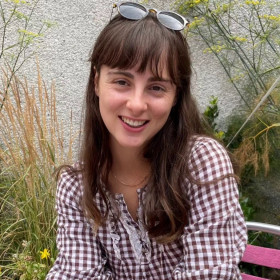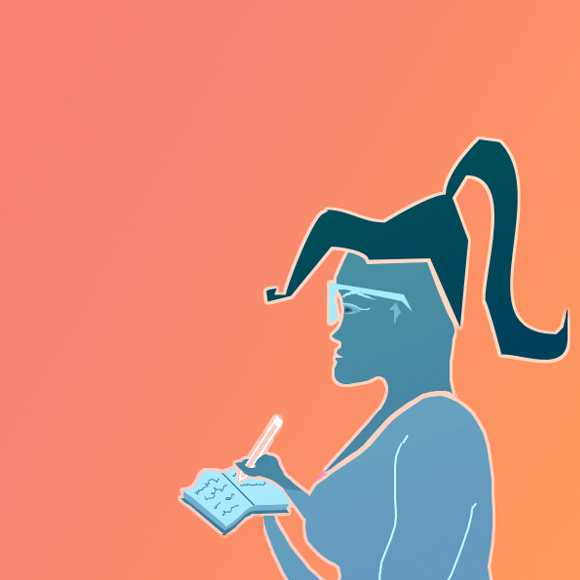Could you please introduce yourself to the reader?
Hello, I’m Rose Caldwell. I’m the CEO of Plan International UK, a global children’s charity striving for an equal world where every child can reach their full potential and every girl can choose her own future. We work across more than 80 countries to build a future where every child is safe and receives an education. To create lasting change, we work together with children, local communities, partners, and supporters who believe a better future is possible.
I have over 20 years’ experience in the not-for-profit sector and am passionate about ensuring children’s and girls’ voices are heard, and their rights realised, in the UK and around the world.
Here in the UK, we address inequalities faced by girls and young women through ground-breaking research, campaigning, influencing the UK government and delivering programmes on topics such as tackling gender norms, menstrual health and mental health.
Plan UK recently commissioned research which investigated the political views and opinions of girls in the UK. The research highlighted that only 15% of UK girls believe politicians act in their best interest. How do you believe this impacts everyday living for girls and young women in the UK?
We were disheartened, yet not entirely surprised, when our research highlighted that girls are feeling disconnected from political leaders in the UK. Girls have told us how politicians’ decisions about issues they care about have made them lose trust (in fact almost half we surveyed felt this!), with many experiencing stress and anxiety because of politicians’ decisions.
This lack of connection with our political leaders is in part a response to what they see and experience in their daily lives. Girls see harassment and threats against women who do speak out, particularly online. Due to negative stereotyping, girls may even be expected by their families, friends and community not to be vocal in the political arena. This puts girls off from engaging in ways they can make their perspectives heard.
A fifth (20%) of girls say the decisions made by politicians on the issues they care about over the past three years have made them feel less confident to share their views, and a fifth (20%) have stopped engaging in politics or current affairs altogether. What do you think is needed in the political system to restore the trust of girls and women specifically?
Politicians need to recognise how important it is to engage with girls. They bring huge amounts of knowledge and their own experience that will result in positive change all over the world.
Girls and young women are powerful changemakers and we have seen evidence of the impact they can have on changing our world for the better. You might have heard of our most recent flagship campaign, #CrimeNotCompliment, where we, alongside Our Streets Now and other youth activists, were successful in criminalising public sexual harassment in the UK. This campaign was a real-life example of the power of girls and youth activists when taken seriously by those in power and as a result forcing real change. From signing petitions, to meetings with MPs, to media interviews and PR stunts, girls and young women were at the heart of making this change happen. It really is possible for girls and young people to make a difference!
But for many girls, the formal political system and those who operate within it are often inaccessible, irrelevant and not worth the effort. They don’t see how their voices can be heard or their perspectives acted upon, by those who are supposed to be representing them.
The political system must demonstrate that it is prioritising the things that matter to girls, by actively involving them in decision-making, such as inviting them to be part of policy-making processes about issues that affect them. Political leaders must then show that they are listening to what girls have to say and are implementing their perspectives into the decisions they are making.
During your time at Plan UK, how has the political environment in the UK shaped your work?
The political environment in the UK has been filled with so much uncertainty and instability, and this has led to a shift towards us having to be more agile in how we work. Huge issues have been dominating the political stage, such as Brexit and COVID-19, and these have shifted attention away from many important topics including girls’ rights and gender equality, pushing them off the agenda.
Multiple cabinet reshuffles and leadership changes have made it very difficult for long-term policy agenda to make any meaningful change. Also, the aid cuts and merging of the Foreign & Commonwealth Office with the Department for International Development in 2020 have been challenging, particularly for the partners we work with all over the world.
Despite all this, girls have continued to tirelessly campaign alongside us for meaningful change – a demonstration of the unwavering determination of girls and young women in making a better future for us all.
What do you think prevents young women from voting in elections? What steps can be taken to overcome these barriers?
Girls tell us the three key things preventing them from voting are that they don’t know enough about politics, they don’t feel they can make an informed enough decision when voting, and that they aren’t convinced their vote would play a part in shaping decisions that will impact their lives.
It’s so important to exercise your right to vote – we are fortunate to live in a society where we have a democratic system where elections are fair and voting is free. Although it may not feel like it to some young people, girls’ votes do make a difference and their perspective matters. You don’t need to be an expert in politics to vote in an election.
We strongly believe that if girls understand the difference their vote can make, know how to get involved in having their say, and are inspired by role models, they can be encouraged to vote and get involved in politics.
I also can’t understate the importance of creating spaces that are free from all forms of discrimination, including tackling sexist and racist harassment, so that girls and women can express their opinions without fear of being discriminated against, patronised or ignored. Feeling confident and safe in sharing their views will also help empower girls to exercise their right to vote.
We are striving for a world where girls’ and young women’s voices are not just heard but are actively shaping the political landscape!
What issues do you think are of particular importance to girls and young women in the next general election?
Our research for International Day of the Girl that surveyed 1,000 girls and young women last year found that top issues they want the UK government to prioritise include the cost-of-living crisis (56%), healthcare and the NHS (42%), mental health (30%), the UK economy (25%) and climate change (23%). Plus, when we speak to girls both here in the UK and around the world, tackling violence against women and girls is always high on their priority list.
Politicians must recognise how these issues impact girls and young women specifically, alongside other intersecting identities, to be on the path to meaningfully representing and engaging with them in the run-up to the general election.
We will be launching our State of Girls’ Rights report later this year, which has collected the perspectives of almost 3,000 girls and young women across the UK – so watch this space for more research on the issues that matter most to them!
What is your encouragement to girls and young women that youth voice matters?
I encourage girls and young women to recognise the value and power of their talent, ideas and strength in shaping the world around them. Whether you are passionate about girls’ rights, climate action or social justice, your lived experience and unique perspective is vital in creating the change you want to see. Exercising your right to vote is a massively important, and simple, way to make your voice heard. It’s a right that women have fought for us to have and something we should never take for granted.
If you want to find out more about how to become a youth activist and campaign on the issues that matter to you, check out our Act For Girls Toolkit.







0 Comments